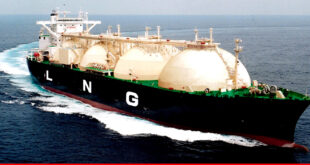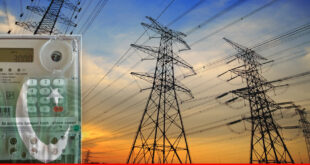Pakistan and Tajikistan have been strongly working in many fields that counting trade and investment. The both brotherly states have got giant trade potential in many sectors such as agriculture, textile, food industry, and surgical equipments. Tajikistan’s total volume of export to Pakistan reached at around $100 million previous year. The ongoing bilateral trade volume did not commensurate with the actual potential of two brotherly states. Tajikistan will be able to export 1,000MW of cheap and clean hydro energy to Pakistan by 2018. The work on the project- CASA-1000 (Central Asia South Asia Electricity Transmission and Trade Project) is underway and Pakistan will receive 1,000MW hydro power within the next 3-year time.
It is hoped that the project would assist growing power trade between these states. The project is funded by the World Bank. Economic experts said that the Pakistani business community to work forcefully to improve the trade activities with the counterpart firms of Tajikistan. The government of Tajikistan was also eager to more strengthen the ongoing association with Pakistan particularly in enlarging investments and trade ties, by mutual co-operation in energy sector. The accessibility of cheep and sufficient energy is demanded by Pakistan as the country has been facing power shortfalls since long. The import of CASA 1,000MW energy would attract overseas investment as well as to grow its domestic industry.
Progress in DASU project
On the other hand, experts recorded an important progress towards the implementation of the 1st phase of Dasu Hydropower Project with a generation capability of 2,160MW, the agreements were inked between WAPDA and CCECC (China Civil Engineering Construction Company). The agreement namely Dasu-KKH-01 value Rs14.538 billion relates to relocation of 25-km-long stretch of the KKH. The agreement is planned to be implemented in 546-day. The 2-lane relocated stretch would be built at a larger attitude with the design standard prescribed for KKH.
With construction of this strip, the passage to the mechanical region and access to the dam site would be bypassed so as not to hinder the construction activities on the project. Most significantly, the citizens would also get a hassle-free excellence road service. However, the second agreement Dasu-RAR-01, valuing to Rs2.713 billion, is scheduled to be implemented in 1-year. This 12 km long road would be built on the right bank of the River Indus from Komila to Seo Dam location. Presently, there is improper road access except a jeepable track. The construction of the 2-lane access road would not only enable the project departments to start work on camps and proposed vocational training institutes but also give thousands of citizens of adjoining regions with an all-climate excellence road facility.
Presently the district administration is busy in land acquisition for stage-1 of Dasu Hydropower Project. The project concerned departments have, however, mentioned that the procedure of acquiring land is slow, and these 2 agreements as well as very conclusion of the stage-I of Dasu hydropower project would suffer a delay if the pace of land acquisition is not accelerated. The federal government is implementing the 4,320MW Dasu project in 2-stage. The World Bank is funding stage-I of the project with an IDA credit of $588.4 million and an IDA PCG of $460 million.
Upon conclusion, the 1st stage would contribute a large quantity of energy of cheap, reasonable and environment-friendly energy to the national grid. No doubt, the plant will not just add a sizeable quantum of low-cost energy to the national grid but also give relief to the users through declining energy tariff. To cap it all, the project would usher in a fresh period of socio-economic progress in the far-flung regions of Khyber Pakhtunkhwa (KPK).
|
WORLD HYDROELECTRIC MAJOR PROJECTS UNDER CONSTRUCTION
|
|||||
|---|---|---|---|---|---|
|
NAME
|
MAXIMUM CAPACITY
|
COUNTRY
|
NAME
|
MAXIMUM CAPACITY
|
COUNTRY
|
|
Belo Monte Dam
|
11,181 MW
|
Brazil
|
Lianghekou Dam
|
3,000 MW
|
China
|
|
Siang Upper HE Project
|
11,000 MW
|
India
|
Dagangshan Dam
|
2,600 MW
|
China
|
|
TaSang Dam
|
7,110 MW
|
Burma
|
Liyuan Dam
|
2,400 MW
|
China
|
|
Xiangjiaba Dam
|
6,400 MW
|
China
|
Tocoma DamBolívar State
|
2,160 MW
|
Venezuela
|
|
Grand Ethiopian Renaissance Dam
|
6,000 MW
|
Ethiopia
|
Ludila Dam
|
2,100 MW
|
China
|
|
Nuozhadu Dam
|
5,850 MW
|
China
|
Shuangjiangkou Dam
|
2,000 MW
|
China
|
|
Jinping 2 Hydropower Station
|
4,800 MW
|
China
|
Ahai Dam
|
2,000 MW
|
China
|
|
Diamer-Bhasha Dam
|
4,500 MW
|
Pakistan
|
Teles Pires Dam
|
1,820 MW
|
Brazil
|
|
Jinping 1 Hydropower Station
|
3,600 MW
|
China
|
Lower Subansiri Dam
|
2,000 MW
|
India
|
|
Jirau Power Station
|
3,300 MW
|
Brazil
|
Guanyinyan Dam
|
3,000 MW
|
China
|
 PAGE Blog Business Weekly Magazine
PAGE Blog Business Weekly Magazine

